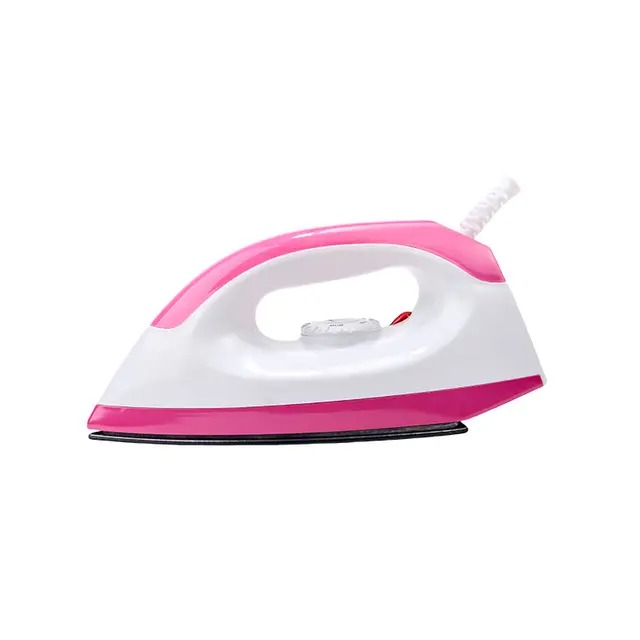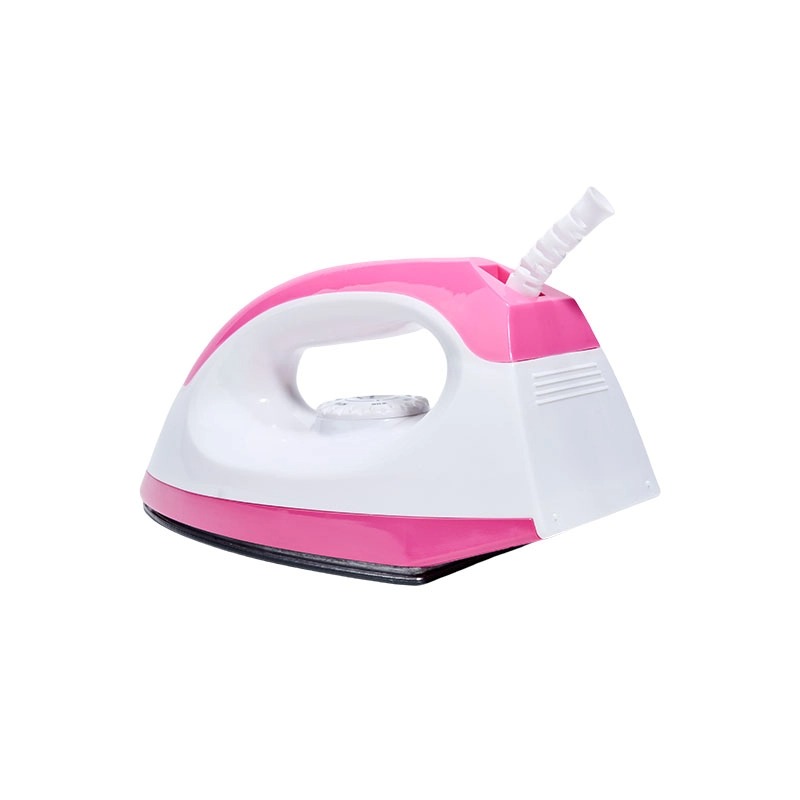- All
- Product Name
- Product Keyword
- Product Model
- Product Summary
- Product Description
- Multi Field Search
Views: 196 Author: Site Editor Publish Time: 2025-09-09 Origin: Site








For years, traditional steam irons and bulky ironing boards have been the default solution for keeping clothes crisp. But in recent times, handheld irons—particularly handheld steam irons—have entered the market as compact, travel-friendly alternatives.
In this article, we’ll unpack the strengths and weaknesses of handheld irons, compare them with full-size steam irons, and evaluate whether they truly deliver on convenience, performance, and value. If you’re considering replacing your traditional iron or buying a portable option, this guide will help you make an informed choice.
Handheld irons stand apart due to their lightweight build, portability, and dual functionality. While a full-sized iron demands a sturdy ironing board, handheld irons often work vertically, making them ideal for quick garment touch-ups without setup.
Key differences include:
| Feature | Handheld Irons | Traditional Steam Irons |
|---|---|---|
| Size & Weight | Compact, 1–2 lbs | Bulkier, 2–4 lbs or more |
| Usability | Vertical steaming, quick freshening | Horizontal pressing, deep creases |
| Portability | Travel-friendly | Stationary, not ideal for travel |
| Power & Steam Output | Moderate | Stronger and more consistent |
The main takeaway? Handheld irons are designed for speed and flexibility, while traditional irons remain superior for heavy-duty pressing.

The effectiveness of handheld irons depends largely on fabric type and wrinkle depth. For light fabrics like cotton blends, polyester, and silk, handheld steam irons work surprisingly well, releasing wrinkles with a few passes. However, thicker fabrics such as denim, linen, or wool often require multiple steaming attempts and may never look as sharp as with a traditional iron.
Practical insights:
Great for quick refreshes: A handheld iron excels at removing surface wrinkles before a meeting or dinner.
Not ideal for deep creases: Clothes left in a suitcase for days may not fully smooth out without a heavier iron.
Best for delicate materials: Handheld irons offer gentler care compared to traditional high-heat irons, reducing burn risks on silk or satin.
So yes—handheld irons are good, but with limitations based on fabric type and wrinkle severity.
Despite their reduced power compared to traditional models, handheld irons come with several advantages that make them appealing.
Handheld irons weigh far less than full-size irons and often come with dual voltage support, making them perfect for international travel. Their compact design allows them to slip easily into carry-on luggage.
Unlike traditional irons that may take 3–5 minutes to heat, handheld irons typically heat in under 60 seconds, saving time for busy mornings.
Many handheld irons function as garment steamers, meaning they can freshen curtains, sanitize upholstery, or deodorize clothes. This versatility extends their usefulness beyond simple wrinkle removal.
Because they rely more on steam than direct pressure, handheld irons are much less likely to scorch or damage delicate fabrics.
Overall, their advantages lie in speed, portability, and fabric safety, making them well-suited for modern, fast-paced lifestyles.
While handheld irons solve some problems, they also introduce new challenges. Knowing these limitations is essential before purchasing.
| Limitation | Why It Matters |
|---|---|
| Limited steam capacity | Small water tanks mean frequent refilling. |
| Less pressing power | Deep creases in heavy fabrics remain. |
| Shorter runtime | Most last 10–15 minutes before refill. |
| Potential leaks/spits | Cheaper models may drip on fabrics. |
These drawbacks highlight that handheld irons are not a full replacement for traditional steam irons—especially for households that frequently iron large laundry loads.
When comparing handheld irons to traditional models, the better choice depends on your needs.
| Criteria | Handheld Irons | Traditional Steam Irons | Best For |
|---|---|---|---|
| Portability | Excellent | Poor | Travel & small spaces |
| Speed of Use | Fast heat-up, quick fixes | Slower but thorough | Busy mornings |
| Fabric Versatility | Gentle on delicate fabrics | Strong on heavy fabrics | Varied wardrobes |
| Longevity & Durability | Moderate lifespan | Often longer-lasting | Frequent users |
| Cost Range | Affordable to mid-range ($30–$100) | Mid to high range ($40–$150+) | Budget-conscious or heavy-duty users |
Verdict: If you value convenience and light usage, handheld irons are very good. For heavy-duty ironing, traditional steam irons remain superior.

Handheld irons are not universally the best option—but they shine in specific contexts:
Frequent travelers who need a wrinkle-free look without carrying large appliances.
Apartment dwellers or students with limited space for an ironing board.
Professionals on-the-go who need quick touch-ups before meetings.
Delicate fabric owners who want a safer, gentler alternative.
If these scenarios describe you, a handheld steam iron could be an excellent addition to your household tools.
Even though handheld irons have limitations, you can maximize their effectiveness with the right practices:
Hang garments vertically before steaming—gravity helps release wrinkles faster.
Use distilled water to prevent calcium buildup and extend appliance life.
Start with lighter fabrics like cotton shirts before attempting thick denim or jackets.
Keep strokes consistent and slow, allowing steam to penetrate the fibers fully.
Invest in a higher-quality model with strong steam output and anti-drip technology.
These techniques ensure your handheld iron performs at its best, giving results closer to a full-sized iron.
Handheld steam irons offer excellent portability, quick performance, and fabric-safe steaming, making them perfect for travelers, professionals, and light household use. However, they fall short for heavy-duty ironing tasks and deeply wrinkled fabrics, where traditional steam irons still dominate.
In short, Handheld irons are not a replacement, but a supplement. If you need speed, convenience, and versatility, they’re a very good investment.
1. Do handheld irons work on all fabrics?
They work best on lightweight and delicate fabrics, but struggle with thick materials like denim and linen.
2. Can handheld irons replace traditional irons?
Not entirely. They’re great for quick fixes but don’t provide the same pressing power for deeply wrinkled clothes.
3. How long do handheld irons last?
Most last several years with proper care, but their smaller build means they may wear out faster than full-size models.
4. Are handheld irons safe for delicate fabrics like silk?
Yes. In fact, they’re often safer than traditional irons because they rely more on steam than direct heat.
5. What’s the price range of handheld irons?
Typically between $30 and $100, depending on brand, steam power, and extra features.